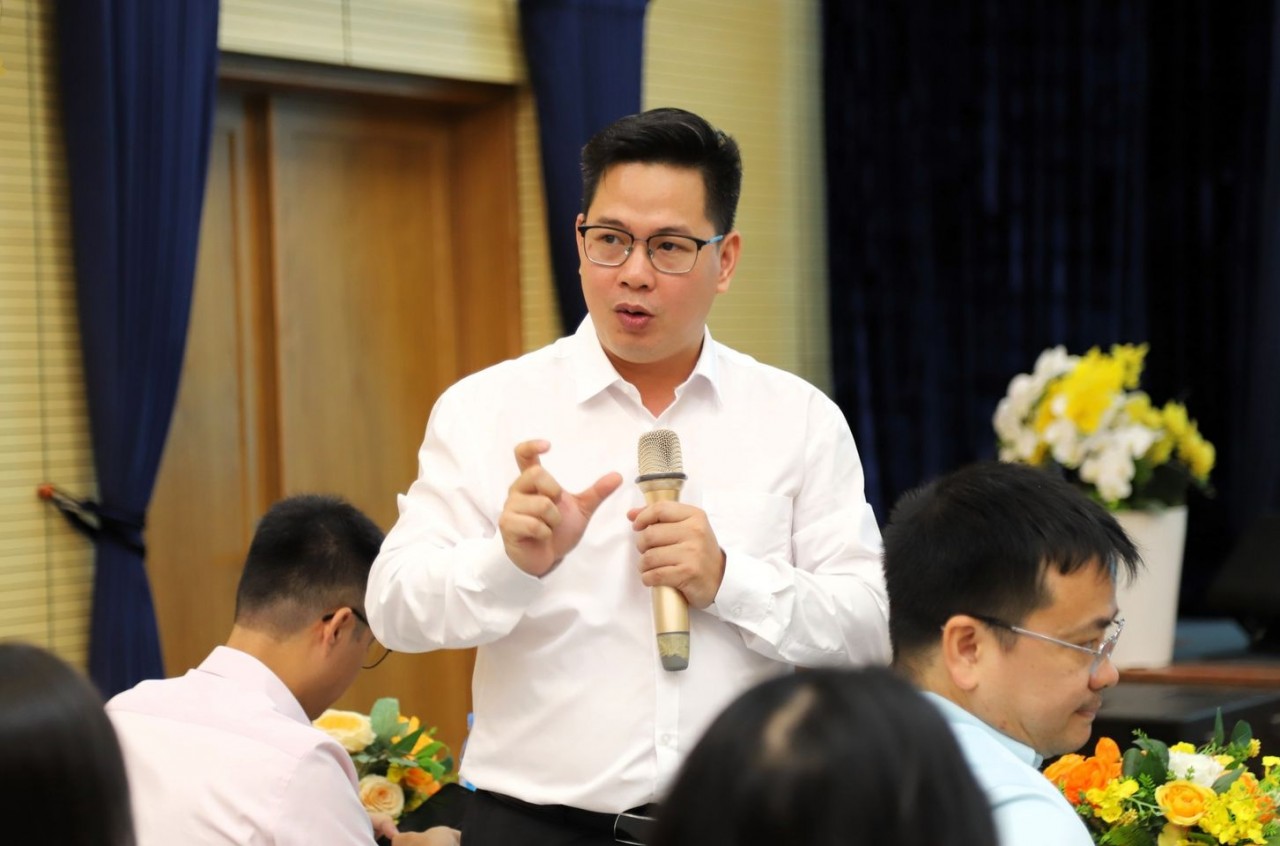 |
| Associate Professor, Dr. Tran Thanh Nam. (Photo: NVCC) |
That is the opinion of Associate Professor, Dr. Tran Thanh Nam, Vice Principal of the University of Education , VNU, with The World & Vietnam Newspaper about Gen Z - a new factor in the labor market.
Gen Z and the fear of "expiration date"
What do you think about Gen Z - the new factor in the labor market?
Gen Z is a young, dynamic, confident generation, good at applying technology, and proficient in foreign languages. They are opinionated people, confident in expressing their personality and lifestyle. They have good financial thinking, entrepreneurial and start-up spirit, always want to be pioneers, leading and updating new trends.
Compared to previous generations such as Gen X or Gen Y, Gen Z is considered a generation with a lot of pressure, facing many problems of stress, anxiety, depression and mental health damage. Gen Z increasingly faces pressure from work, a higher volume of knowledge, study, and homework, and has to cope with crises of climate change, population aging, natural disasters, and epidemics. At the same time, they face an uncertain career future with increasing competition from automation technology and artificial intelligence.
This is also the generation with the highest rate of psychological disorders such as FOMO (fear of missing out) and FOLO (fear of disconnection). The rate of young people who have an imbalance between real life and the virtual world, are addicted to the internet, video games, and pornography is also the highest when compared to Generation X or Y.
Generation Z was born as a digital citizen, proficient and overly dependent on technology devices and the Internet, leading to an increasingly weaker awareness of social situations and behavior, and weaker soft skills. Even the most basic skills such as standard verbal or written communication, presentation or persuasion skills of Generation Z are considered to be weaker than previous generations.
Although the relationships of the younger generation are increasingly expanding and global, Gen Z is considered the loneliest generation. Being good at foreign languages and connecting with friends around the world means there are more and more examples of super achievements for them to compare and put pressure on themselves. Therefore, although they know a lot of friends on social networks, they often feel that no one can trust them, no one is their confidant and no one can understand them.
What risks are they facing, according to you?
Gen Z is living in a world of information overload, where the knowledge that humanity produces every day exceeds human capacity to absorb. This leads to confusion about what to learn and how to learn so that it does not "expire" before "retiring".
As digital citizens, Gen Z also worries about the risk that technological advances will make their roles redundant, that the skills that Gen Z learns and is trained by universities will soon become obsolete when technology develops too quickly. Even young people who graduate with excellent degrees cannot learn new and updated skills and cannot adapt to the extremely rapid changes in technology and labor market requirements.
Gen Z is considered the fastest generation but also the most distracted generation. Because you have to be exposed to too many short video content on social networks. It is estimated that today's young generation can only focus on watching a piece of information for about eight seconds... down about four seconds compared to 10 years ago.
The rate of children in society with symptoms of attention deficit hyperactivity disorder in the community is increasing at 11% and tends to increase in the coming years. Prioritizing reaction speed also leads to the consequence of reduced critical thinking ability and empathy. Therefore, today's youth are easily manipulated by fake news, untrue news, easily lose control due to misunderstandings, easily transform negative emotions into cyber violence due to lack of empathy for each other in the digital environment.
Under the pressure of the context and living environment, many young people feel overloaded and exhausted. If not properly supported and protected, they can become a confused generation looking at life with a negative worldview and outlook on life. In other words, it is a generation "drowning" in the information pool of the digital society but still "starving" in terms of knowledge, a generation lying down because of lack of motivation, lack of will and no desire to rise up. Thus, even though there are "fish - knowledge" and "fishing rod - method" in front of them, students no longer have the motivation to catch "fish" (acquire knowledge).
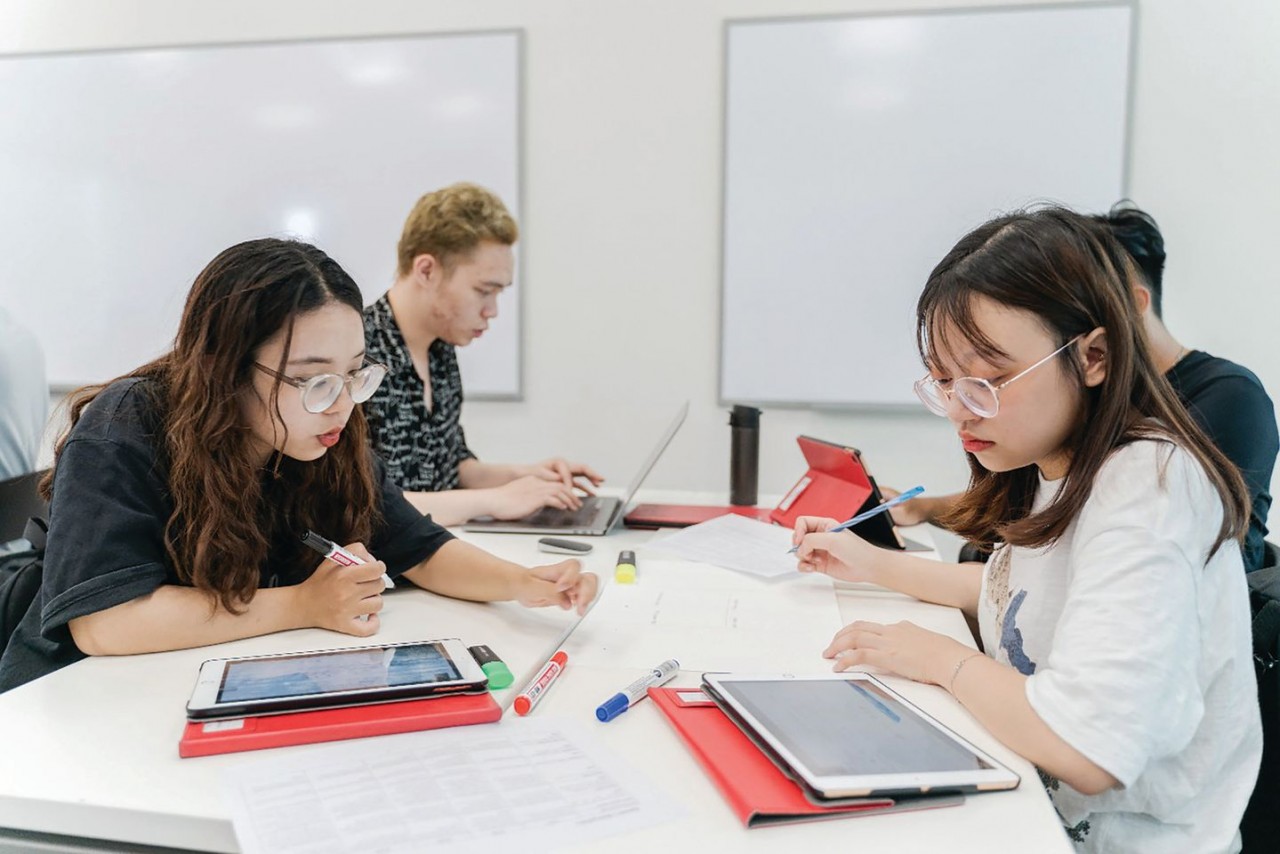 |
| As digital citizens, Gen Z also worries about the risk that technological advances will make their roles redundant. (Source: DDK) |
Adapting to labor market elimination
As someone who comes into contact with many young people, what do you think Gen Z needs to do to avoid becoming obsolete in the face of the rapidly changing labor market?
With the incredible development of artificial intelligence, the career world of Gen Z is becoming increasingly uncertain, anxiety and confusion are inevitable. Therefore, Gen Z needs to set goals for learning and developing themselves comprehensively, becoming a confident individual (in both knowledge and integration skills), a self-directed citizen (ability to think critically and have opinions on social realities), a responsible person (behaving according to good values) and having a spirit of dedication (willing to participate in volunteer activities to help the community).
In order not to be outdated in the face of rapid changes in the labor market, Gen Z individuals need to practice human strengths such as high-level thinking abilities, social-emotional abilities and the ability to master technology to become "first-class humans" and not just learn to master repetitive physical skills or low-level thinking abilities, choosing right and wrong to become "second-class robots".
With the rapid update of technology, Gen Z needs to re-evaluate their technological capabilities every 2-3 years to know where they are and what they need to update to do well in their current position. Let's get rid of the mindset that only a university degree granted 10 years ago is enough to work, but must determine to learn for life, be willing to say "I don't know" to seek advice and update knowledge from colleagues.
What are Gen Z's strengths in your opinion?
Gen Z is considered the most creative, practical and fastest generation. They crave autonomy and independence, especially in their career development path. More than 70% of Gen Z youth do not want adults to disappoint them. They want to work in a transparent, flexible and respectful environment. They tend to defend what they believe is right, want to make a difference, assert themselves and attract attention by creating trends.
The entrepreneurial spirit is ingrained in the blood of many young people of Generation Z. This is also the generation that wants to express themselves and contribute something positive to the common development of the world. The results of many surveys show that up to 50% of young people of this generation asked claim to be nurturing plans to "change the world".
With such characteristics, if properly inspired, inspired and guided, Generation Z will be the agents that create positive and miraculous changes in life.
Gen Z is also facing a fierce situation of elimination and layoffs in the labor market. So what adjustments do young people need to make to adapt and equip themselves with specific skills for new opportunities?
To adapt to the fierce situation of elimination and layoffs in the labor market, young citizens need to equip themselves with the 4 Cs to succeed in life and work (this is an approach according to the Learning Compass of the countries of the Organization for Economic Cooperation and Development - OECD). These are Critical thinking, Creativity, Communication, and Collaboration.
In order not to "expire" too soon, young people must also equip themselves with 21st-century citizenship skills. First, global citizenship skills (proficient use of languages and foreign languages for work). Second, digital skills (proficient use of digital tools to improve work quality). Third, adaptive skills (teamwork skills, leadership skills, self-motivation and self-management, empathetic listening and mental health care skills, impressive writing skills, persuasive communication skills and personal development skills). Fourth, innovation skills (design thinking, critical thinking).
To succeed in an uncertain world, McKinsey (a management consulting and strategic consulting firm for corporations, governments and multinational organizations) believes that young people must have self-discipline (self-leadership); brainpower (brain thinking); heartpower (persuasive communication skills) and handpower (digital skills to increase work efficiency). At least these skills are needed for young people to train themselves in their journey of personality and career development.
Thank you!
Source





![[Photo] "Ship graveyard" on Xuan Dai Bay](https://vphoto.vietnam.vn/thumb/1200x675/vietnam/resource/IMAGE/2025/11/08/1762577162805_ndo_br_tb5-jpg.webp)






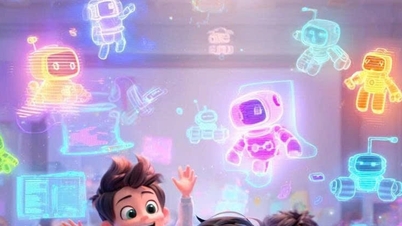




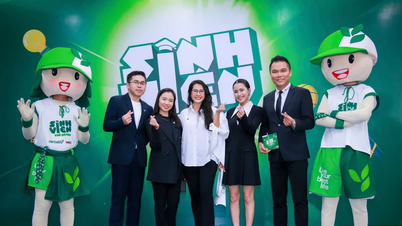







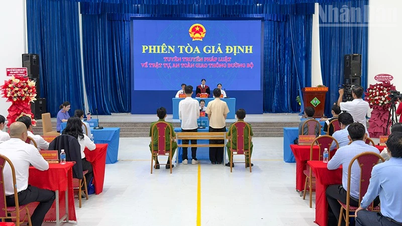





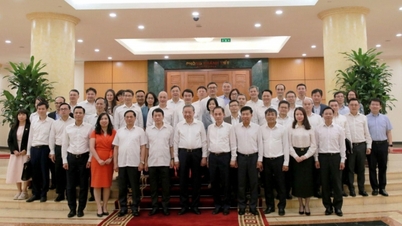




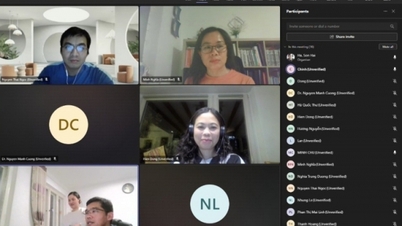


![[Video] Hue Monuments reopen to welcome visitors](https://vphoto.vietnam.vn/thumb/402x226/vietnam/resource/IMAGE/2025/11/05/1762301089171_dung01-05-43-09still013-jpg.webp)



















































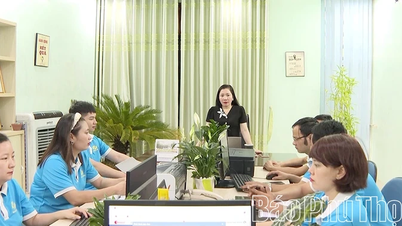

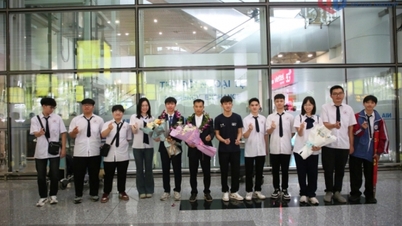
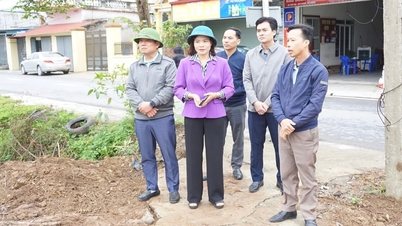












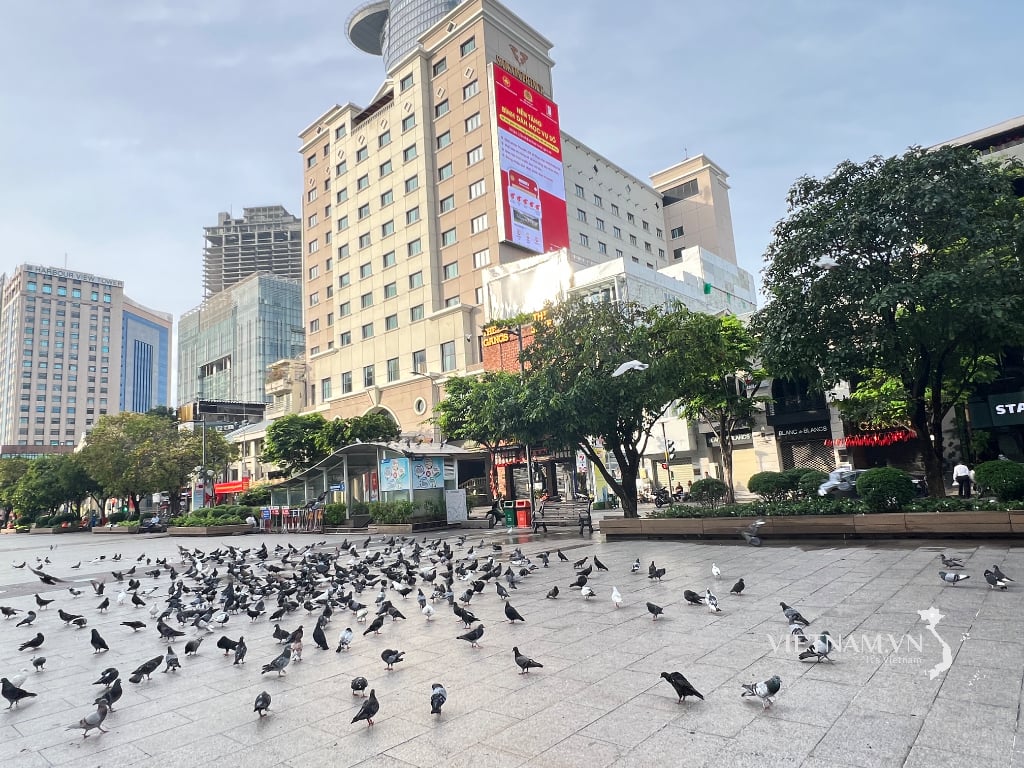
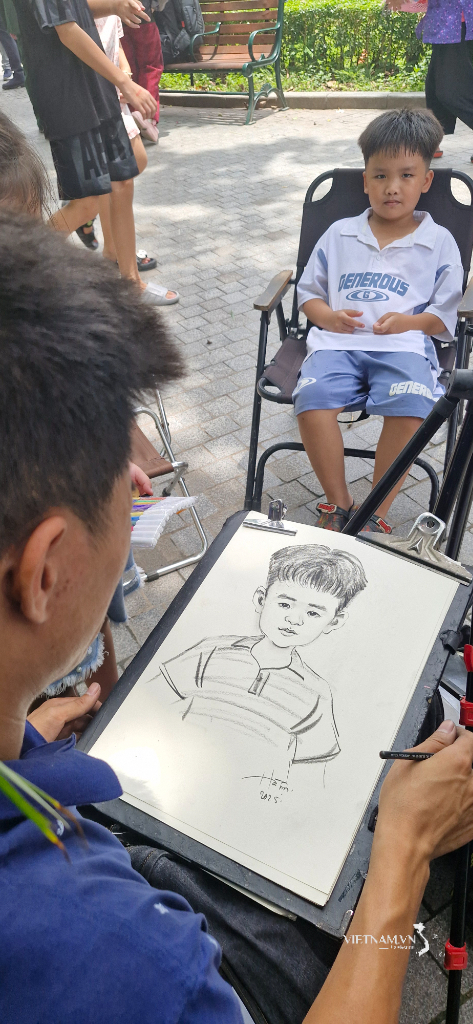

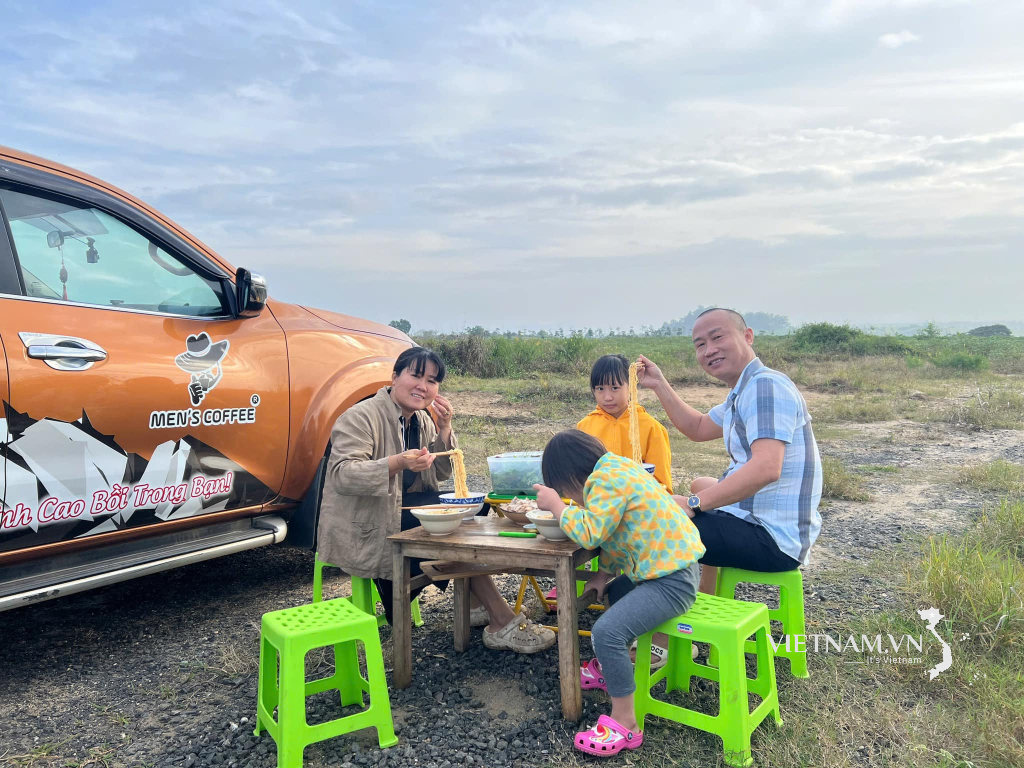
Comment (0)